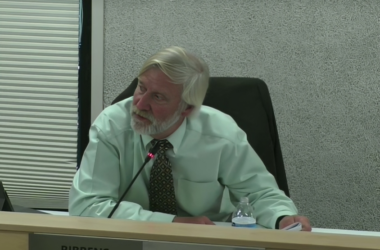Alaska Governor Mike Dunleavy vetoed House Bill 69 on Thursday, rejecting a plan that would have increased the state’s base student allocation (BSA) for public education by $1,000 per student. Instead, Dunleavy said he will introduce a new education proposal that includes a smaller BSA increase—$560—alongside a series of policy reforms and targeted funding initiatives.
“There were really two reasons for the veto,” Dunleavy said during a Thursday press conference. “The revenue situation has deteriorated a lot since we submitted the bills and worked off a budget in December, and there’s no policy in the bill.”
The governor had previously signaled strong opposition to the legislation after the Senate stripped it of several policy provisions. In remarks to reporters earlier this month, Dunleavy called the version sent to his desk “a joke.”
According to the governor’s office, the vetoed bill would have added hundreds of millions in education spending without structural reforms—at a time when Alaska faces declining state revenues. The governor emphasized that while he supports increased education funding, it must be paired with accountability measures.
Dunleavy’s new proposal, expected to be introduced Friday, would boost the BSA by $560 but provide a total funding package equivalent to a $700 BSA increase through additional programs. The plan includes $35 million in targeted education funding, such as:
- $21.9 million in reading incentive grants for K–6 students tied to proficiency and improvement.
- $13.6 million for correspondence program students, ensuring equitable funding while maintaining parental control.
- Charter school reforms, including streamlined applications, faster appeals, and protections against arbitrary closures.
- School choice policies that expand open enrollment and increase transparency.
- A requirement for school districts to regulate cellphone use.
Dunleavy urged lawmakers to work swiftly on the new proposal, noting that 34 days remain in the legislative session. “We know what the policies are. We know how to get to the end game here,” he said. “If agreed upon by the Legislature, I’ll sign it tomorrow morning, Monday, Tuesday—I would have signed it a month ago.”
It remains unclear whether lawmakers will embrace the revised plan or how the new bill will affect the state’s overall deficit, which already looms large under current funding levels. Still, the governor expressed optimism that a compromise can be reached.






